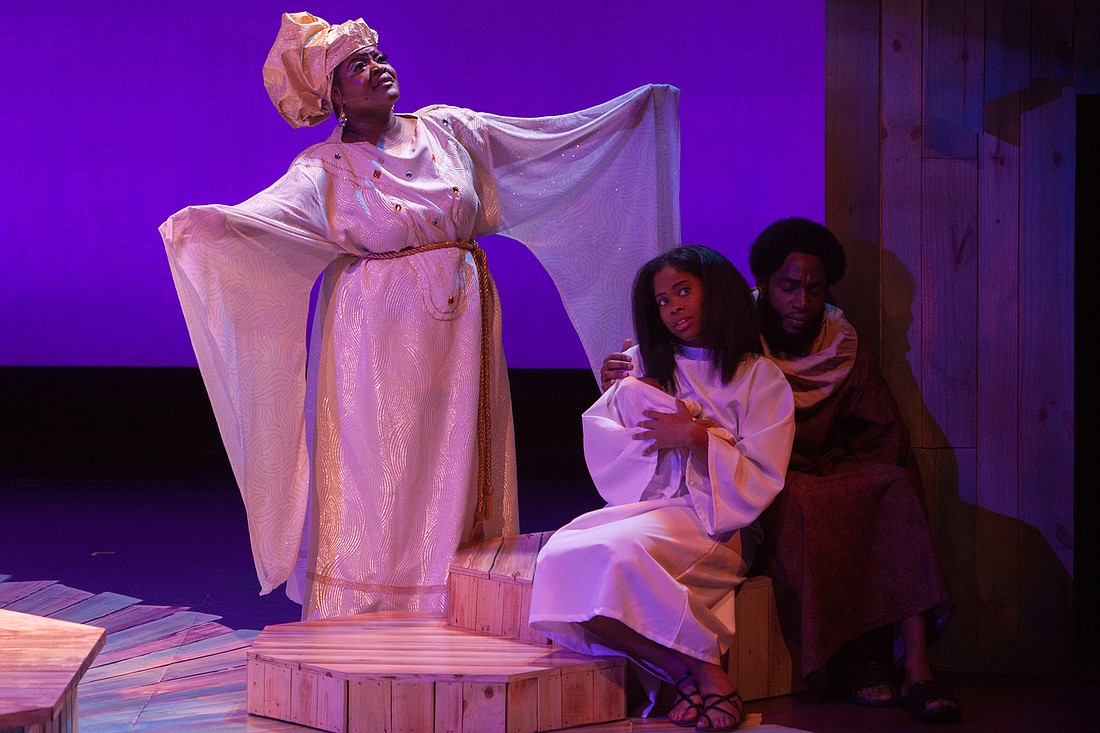- April 25, 2024
-
-
Loading

Loading

Langston Hughes’ “Black Nativity” celebrates the birth of Jesus through the lens of the African-American experience. Like the Medieval mystery plays, there’s no rigid version of exactly how to do it. Hughes’ thin script is a jumping-off point for gospel, blues, jazz, spoken-word narrative, dance — both traditional and nontraditional — and any combination of the above. The result is a universal play designed to express individual points of view. In Sarasota, director Nate Jacobs has poured his mind and heart into the play. He’s made it a West Coast Black Theatre Troupe tradition since 2002 — and a highlight of this year’s holiday season. Why does the play continue to inspire him? Here’s what Jacobs had to say.
Why is gospel music so foundational to this play?
It’s an experiential way of telling the story. Every great gospel song tells a great story in very clear, concise form. When they’re incorporated in the Nativity story, the meaning of the songs becomes specific. So, when Mary’s having her baby, she sings “I’m Just Holding On.” In the context of the play, it means she’s come this far, she’s walked down the road to having this baby, things look bad for her, but she has the faith to see it through to the end of the road. I’m using the gospel song as a tool to carry the story and to make you feel for what Mary’s going through. That’s much more powerful than having a narrator say, “Such and such happened. Then this happened.” I let the music push the story down the road.
Why is Mary’s cousin, Elizabeth, included? Most Nativity stories leave her out.
Elizabeth adds a human element. This is the greatest story ever told; people forget that it’s also a family story. Elizabeth creates an earthly grounding; she’s also someone Mary can relate to; she’s a member of the family. From a Biblical perspective, just put yourself in mind of what Mary was going through: a heavenly being appears to a 14-year-old girl and informs her that she’s giving birth to the son of God. Imagine how overwhelming that would be to Mary. But hearing from her cousin would be a different story. Elizabeth’s whole thing was, “It happened to me, an old woman beyond childbearing years. I was told I’d have a baby; now I’m having a baby. If an angel told you you’re having a baby, you can believe it.” That’s how Mary caught hold of what’s happening to her.
What are some original songs you created for the show?
Well, there’s “King of Kings,” the opening number, which a young male performer sings to an Afro-centric drumbeat; “Shout for Joy,” which Elizabeth sings and “You’re Wonderful,” which Mary sings.
What’s choreographer Donald Frison’s take?
This is his second time doing the show as our resident choreographer. He’s passionately involved at every level. I think his take is simply joy — dance as an expression of life and joy in the present moment. That’s the reason he includes modern dance and dance with African and African-American roots. That approach lets you know this is not some story in the distant past, something remote from our lives. It’s contemporary, revolutionary and life-changing right now.
The actors seemed pretty psyched in rehearsal.
Yes, they are. This is not just a play for them; it’s a spiritual celebration of the birth of Christ. So, yes, I would say the actors are indeed psyched. That goes for the whole company, myself included.
Why does this play resonate with audiences?
“Black Nativity” is African-American in style and spirit. The story it tells belongs to everybody. The meaning of Christmas is not what you’ll find on your next credit card statement.